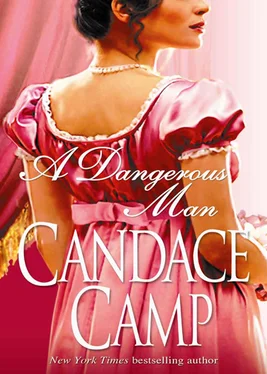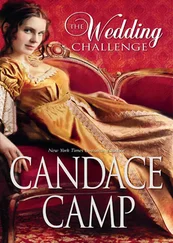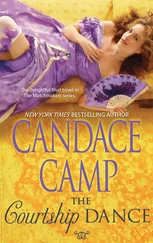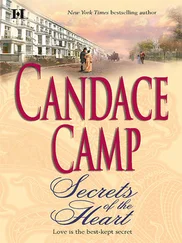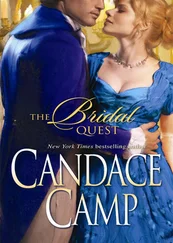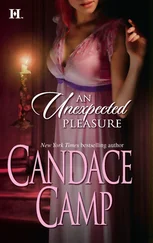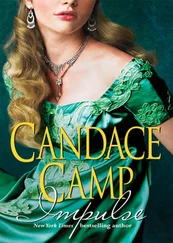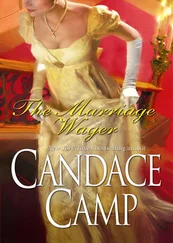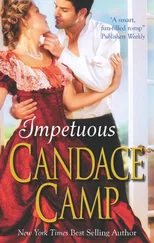The children ran off upstairs, and Eleanor, after handing her hat and light traveling cloak to a footman, went down the hall to the music room. She closed the door after her and stood for a moment, simply looking around. This was the room where Edmund had spent most of his time, and it was the one she most closely connected with him. She felt a pang of sadness, looking at the piano and not seeing him sitting there, as he had a hundred times in the past.
She walked over to the piano and sat down on the padded bench. The music stand was empty, the candelabras holding unburned candles. Clearly the room had been kept up—there wasn’t a trace of dust upon the instrument—but it had the empty feel of a place unoccupied.
Eleanor thought about the first time she had seen Sir Edmund. It had been at a musicale at Francis Buckminster’s home. Eleanor had long been a patron of the arts. Though she did not possess any sort of artistic talent herself, her soul thrilled to the works of those who were talented in those areas, and she had always used part of her fortune to patronize the arts. Wherever she had lived, New York or London or Paris, she had been well-known for her fashionable salon attended by other patrons of the arts, as well as by the writers, composers and others whom she admired. She did not move among the most aristocratic circles in London, for despite her years at a finishing school in England, her American background and the trade-based origins of her family’s wealth would forever make her socially inferior to the elite who ruled London society. But she had a broad circle of friends and acquaintances that consisted of artists and their patrons, so she enjoyed a lively social scene frequented by people from all strata of society.
Sir Edmund had performed one of his sonatas at the musicale, and Eleanor had been struck not only by his virtuosity on the piano but also by the beauty of the piece, which had brought her almost to tears. She had realized almost immediately that this pale, frail blond man was a musical genius.
Over the course of the next few weeks, the two of them had become friends. Unlike most of the artists she knew, he was not in need of financial help. But as she had gotten to know him better, she had realized that he was nevertheless in great need. His health was obviously precarious, for he was wracked by fits of coughing that left him weak and suggested to Eleanor that he was likely consumptive. The damp climate of England could not be good for his health, she thought, but when she had suggested that he travel to sunnier climes, he had only smiled wistfully and told her that he could not.
The reason he could not move, Eleanor soon learned, was his mother, a grasping, demanding, domineering woman who both leaned upon and dominated her only son. Whenever Sir Edmund left his home in the Kentish countryside to live on his own in London, he was soon bombarded with notes from his mother, all filled with problems that only he could solve or accounts of her loneliness without him. This servant or that was stealing from her; the estate manager would not give her enough money to run the house; his younger sister cried into her pillow at night, missing her dearest brother. The result was that Sir Edmund would go rushing home every week or two, abandoning the opera upon which he was working. Worse still, Lady Scarbrough would come to London to visit, and when she was there, she demanded that her son accompany her to balls and soirees, escort her to Almack’s and meet a number of marriageable women, all handpicked by Lady Scarbrough herself.
Sir Edmund invariably did as his mother bid, again neglecting his music to perform a number of chores that could have been done by any ninny, in Eleanor’s opinion. To make up for the lost time, once she left he would then work late into the night on his music, free at last of his mother’s presence. As often as not he forgot to eat, which did little to improve his health.
His servants were sloppy, his household poorly run, and he seemed to have only the vaguest idea about his income, whether from the estate that came with his title or from the money that had been left to him by his maternal grandfather. Such inattentiveness to the necessary details of his life did not surprise Eleanor; she was accustomed to artists and the way they often muddled through the practicalities of life.
She wished that she could simply take charge of his life. It was difficult for her to stand aside and watch people’s lives run off course, and taking hold of a situation and making it work right was something she was extraordinarily good at. There were those, she knew, who termed her bossy and difficult. But she was also quite aware that the people who called her these things were never the ones whom she had stepped in to help, but rather those who were benefiting from the muddle.
Eleanor had been certain that she could put Sir Edmund’s life in better order. The problem, of course, was that she had no right to do any such thing. Edmund was a grown man, not some poor orphan or servant at the mercy of others. She could advise him what to do, of course—and generally did, if the opportunity presented itself—but Sir Edmund’s abhorrence of any sort of conflict, along with his artist’s lack of concern over mundane matters, generally kept him going in his usual rut.
Finally, one afternoon Edmund had come to her, looking drawn and gaunt, wracked by coughs and worried because his mother had written him, describing her loneliness in heart-wrenching words and adding a long list of things she needed to have done for her. Eleanor, alarmed at the state of his health and furious at Lady Scarbrough’s selfishness, had been struck at last by the solution to the problem.
She had decided to marry Sir Edmund. As his wife, she could whip the household and his finances into shape, and see to it that he slept and ate properly. Most of all, she could shield him from his mother.
Of course, she did not love him in the way that a woman loved a man. Theirs would be, truly, a marriage of convenience. But Eleanor did not care about that. She had long ago decided that the sort of marriage other girls dreamed about was not for her. The men who had pursued her were generally only interested in her fortune, and she was too clever and realistic to be fooled by their honeyed words. And the sort of men who were not interested in her wealth did not court her. They might be drawn by her beauty, but she had found that they quickly abandoned the chase.
She was too headstrong, her stepmother Lydia had told her, too stubborn and too capable. A man wanted a more willing wife, a softer woman, the sort who turned to him to solve problems for her instead of charging in herself to solve not only her own problems, but those of everyone else, as well.
Eleanor, frankly, had had no interest in marrying the sort of man who wanted that sort of woman for a wife. She had found most of the men who pursued her to be foolish or greedy or entirely too domineering—sometimes all three. She had no desire to become a wife who was subject to her husband’s decisions, giving up control of her money and her life to him. At twenty-six, she considered herself a confirmed spinster and did not regard the prospect with dismay. She had come to believe that the romantic love other women swooned over was something they simply made up in their heads.
Marrying Sir Edmund had suited her perfectly. She would be able to take care of him and nurture his tremendous talent. She would make it possible for the world to be blessed by his music. And she would take great enjoyment in once again setting a life in order.
Edmund had been equally willing. He admired Eleanor’s strength and determination, and loved her as much as he was capable of loving anything besides his music. He was a passive creature, his strongest passions reserved for his art, and he was delighted to have Eleanor shoulder the burdens that had plagued him and kept him from his primary love.
Читать дальше
